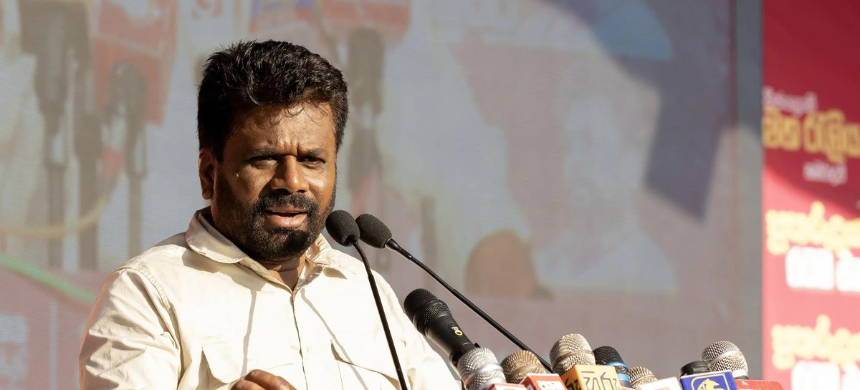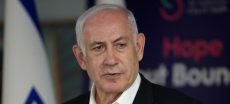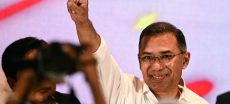Sri Lanka’s newly elected President Anura Kumara Dissanayake dissolved Parliament late Tuesday and announced a parliamentary election set for November 14, just under two months away. This move aims to consolidate his power following his recent election victory, where he campaigned on a promise to dissolve Parliament.
A government notification confirmed that the dissolution took effect at midnight on Tuesday. Dissanayake’s party currently holds only three seats in the 225-member Parliament, and the upcoming snap election presents an opportunity for him to gain control of the chamber while his approval ratings remain favorable after Saturday’s polling.
The dissolution occurred shortly after Dissanayake appointed Harini Amarasuriya as prime minister, making her the first woman to lead the government in 24 years. Amarasuriya, a university lecturer and activist from the Marxist-leaning National People’s Power coalition, shares a similar background with Dissanayake. Her appointment is particularly notable as the last female prime minister was Sirimavo Bandaranaike, the world’s first female head of government, who served until 2000.
Read MOre: Anura Kumara Elected as New President of Sri Lanka
Due to his party’s lack of a majority, Dissanayake faces challenges in appointing a fully fledged Cabinet. He had pledged during his campaign to dissolve Parliament and call a snap election, as the current Parliament’s five-year term is set to expire next August.
Amarasuriya will also oversee four ministries, including justice, health, women, and trade and industries. Another member of Dissanayake’s party, Vijitha Herath, has been appointed to manage six departments, including foreign affairs and public security.
Dissanayake’s first significant challenge will be to address his campaign promise to ease the austerity measures imposed by his predecessor, Ranil Wickremesinghe, in accordance with a relief agreement with the International Monetary Fund (IMF) after Sri Lanka defaulted on its debt. Wickremesinghe has cautioned that any changes to the bailout agreement could delay the release of a fourth tranche of nearly $3 billion.
Sri Lanka’s ongoing crisis is attributed to severe economic mismanagement compounded by the COVID-19 pandemic, which devastated the country’s vital tourism sector. Since the introduction of universal suffrage in 1931, Sri Lanka’s political landscape has been predominantly male-dominated, a trend that is reflected globally. According to a 2023 Pew Research Center analysis, only 13 out of 193 UN member states had women serving as heads of government.











